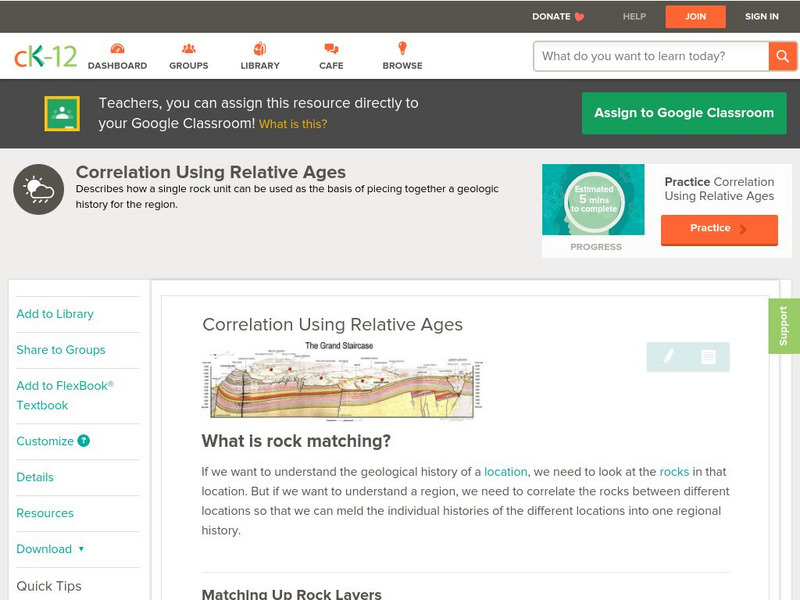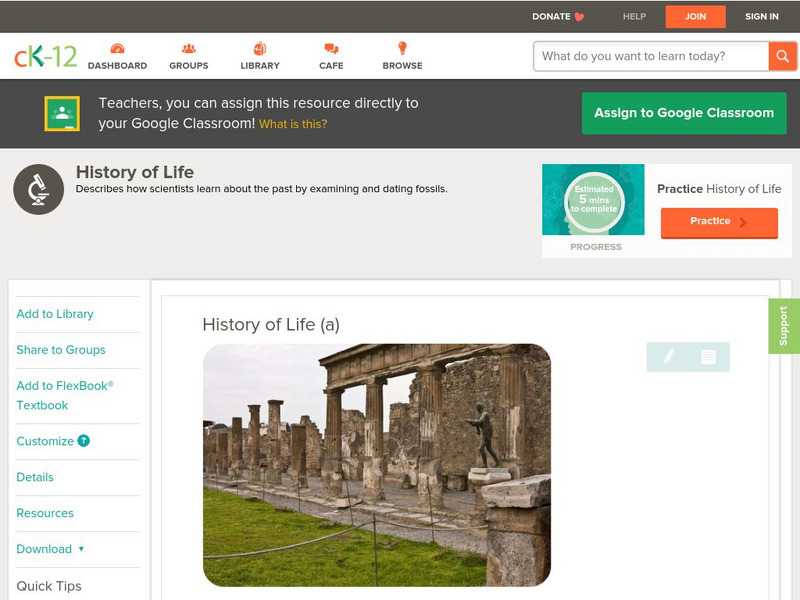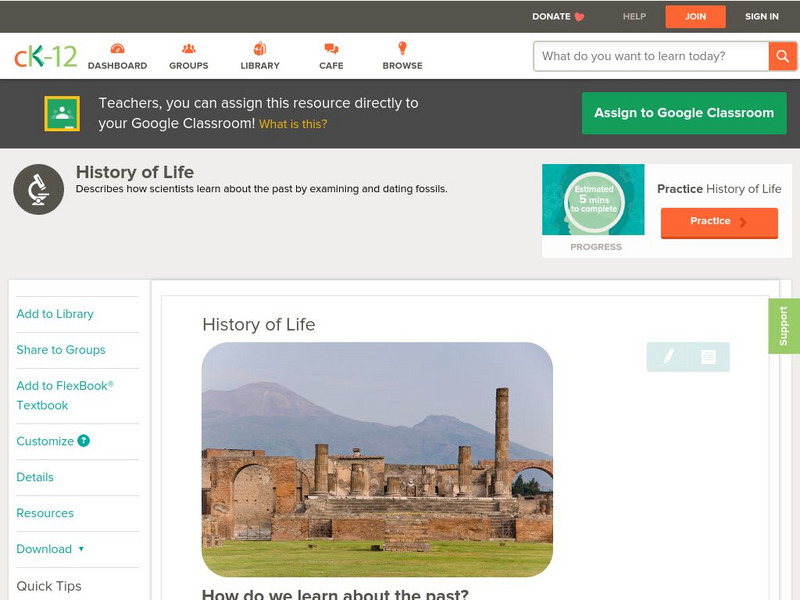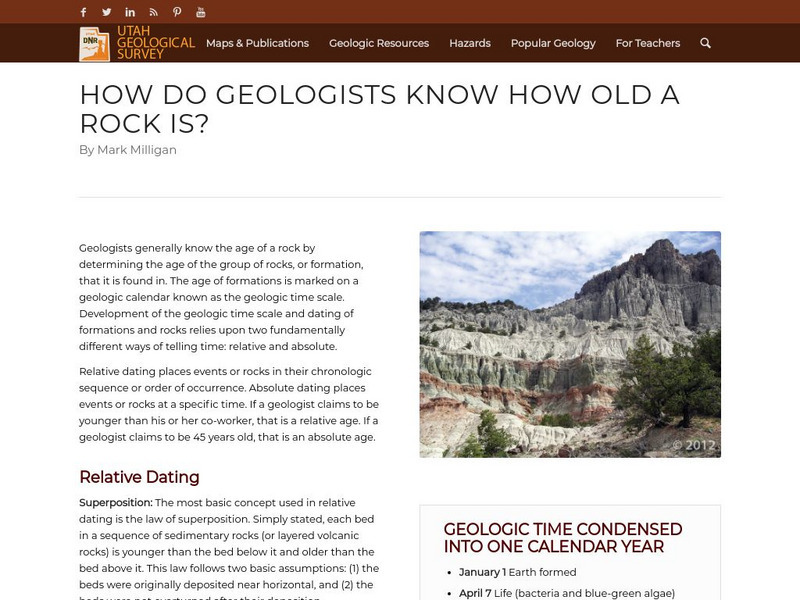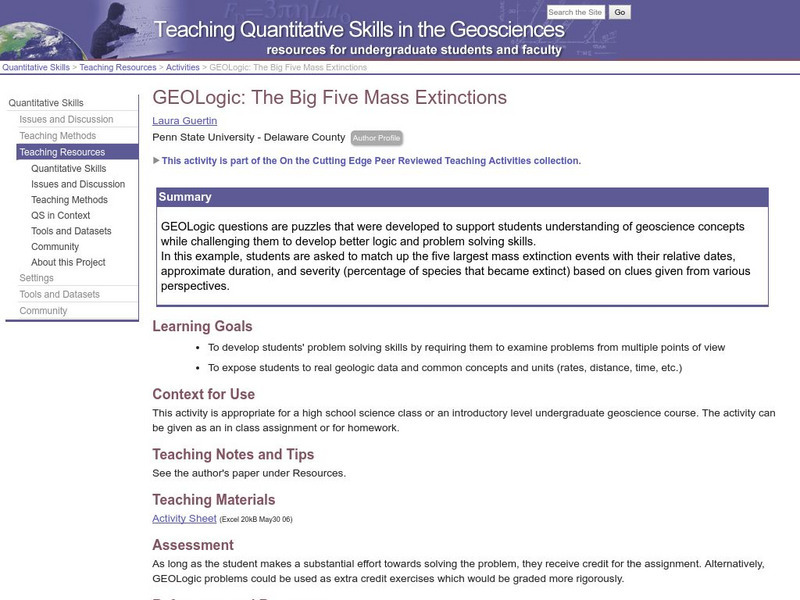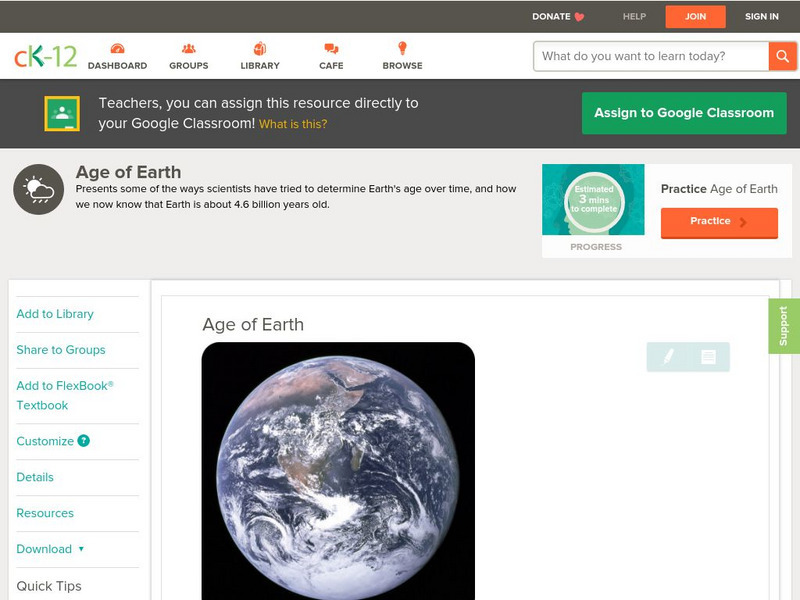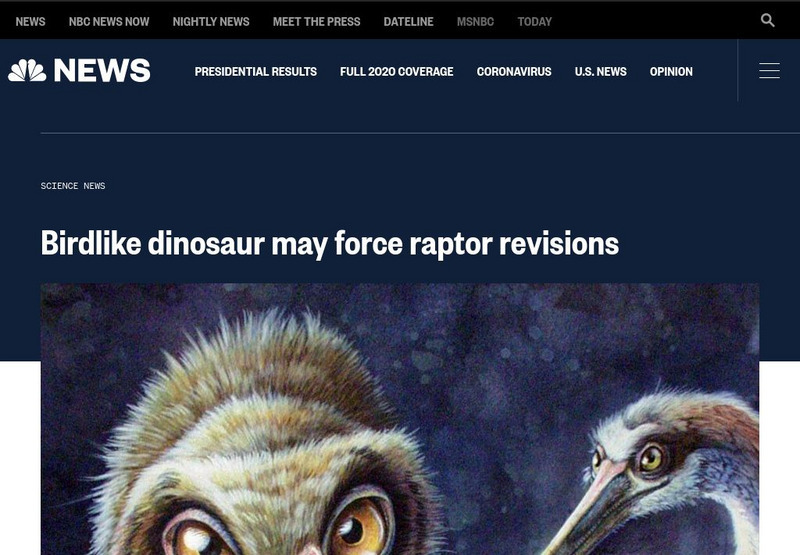CK-12 Foundation
Ck 12: Earth Science: Correlation Using Relative Ages
[Free Registration/Login may be required to access all resource tools.] How rock layers in different locations can be connected to make pictures of a region's geology.
CK-12 Foundation
Ck 12: Earth Science: Correlation Using Relative Ages
[Free Registration/Login may be required to access all resource tools.] How rock layers in different locations can be connected to make pictures of a region's geology.
CK-12 Foundation
Ck 12: Fourth Grade Science: Earth Science: Relative Ages of Rocks
[Free Registration/Login may be required to access all resource tools.] Looks at how stratigraphy can be used to determine the relative ages of rocks, how unconformities occur, ways to match rock layers in different areas, and how...
CK-12 Foundation
Ck 12: Biology: History of Life
[Free Registration/Login may be required to access all resource tools.] Describes how scientists learn about the past by examining and dating fossils.
CK-12 Foundation
Ck 12: Biology: History of Life
[Free Registration/Login may be required to access all resource tools.] This comprehensive lesson by CK-12 explains how scientists learn about the past by examining and dating fossils.
CK-12 Foundation
Ck 12: Life Science: 4.4 Fossils
Understand fossils and the fossil record as it relates to Earth's history.
Science Education Resource Center at Carleton College
Serc: Layer Cake Geology
Using a cake analogy, this activity teaches concepts such as: geologic time, rock layers, fossils, Law of Superposition, and relative dating. Activity can be modified to grade level and appropriate content for young scholars,
Georgia Department of Education
Ga Virtual Learning: Historical Geology
In this interactive tutorial you will explore how geologists use clues in rocks to determine the order in which rocks formed. Learn how principles of radioactivity are used to assign actual ages to rocks. Students will explore fossils...
Other
Utah Geological Survey: How Do Geologists Know How Old a Rock Is?
Geologists generally know the age of a rock by determining the age of the group of rocks, or formation, that it is found in. The age of formations is marked on a geologic calendar known as the geologic time scale. Development of the...
Science Education Resource Center at Carleton College
Serc: Geo Logic: The Big Five Mass Extinctions
Using GEOLogic puzzles, students are asked to match the five largest mass extinction events with their relative dates, approximate duration, and severity based on clues given from various perspectives.
American Geosciences Institute
American Geosciences Institute: How Can We Tell How Old Rocks Are?
Find out how scientists can find out the age of the rocks they are studying.
CK-12 Foundation
Ck 12: Earth Science: Age of Earth
[Free Registration/Login may be required to access all resource tools.] How scientists have been able to determine the age of Earth.
CK-12 Foundation
Ck 12: Earth Science: Age of Earth
[Free Registration/Login may be required to access all resource tools.] How scientists have been able to determine the age of the Earth.
US Geological Survey
U.s. Geological Survey: Geologic Time
A discussion of geologic time, how scientists use the concept, and how they have determined its span.
Georgia Department of Education
Ga Virtual Learning: Geologic Time and Correlation
In this amazing interactive tutorial you will learn about what methods are used by geologists to learn about the history of the Earth. Investigate a geologic time scale and learn about how scientists have developed and organized a record...
University of California
University of California Museum of Paleontology: Geologic Time
Learn about geologic time, including the age of the Earth by putting it in terms of pages in a book.
NBC
Msnbc.com: Birdlike Dinosaur May Force Raptor Revisions
Fossils found in Argentina have led scientists to change the way they think about the evolution of dinosaurs. A relative of the velociraptor has been found that demonstrated bird-like features. Learn more about these fossils here. [Date...



